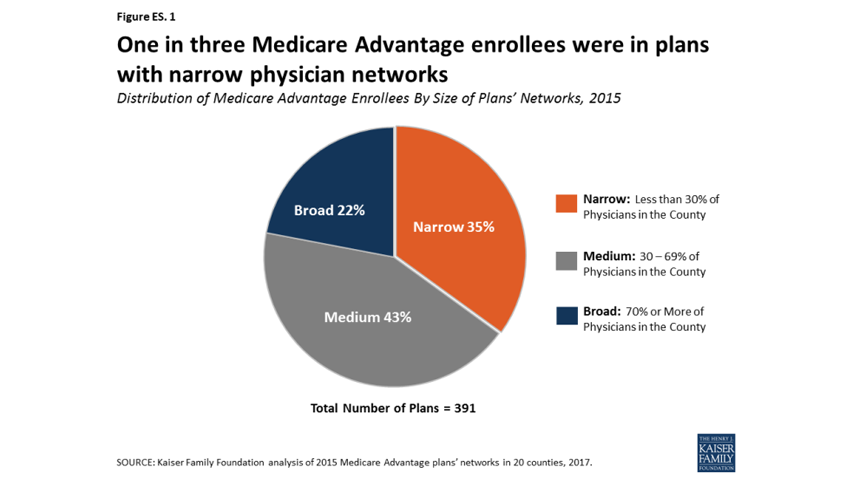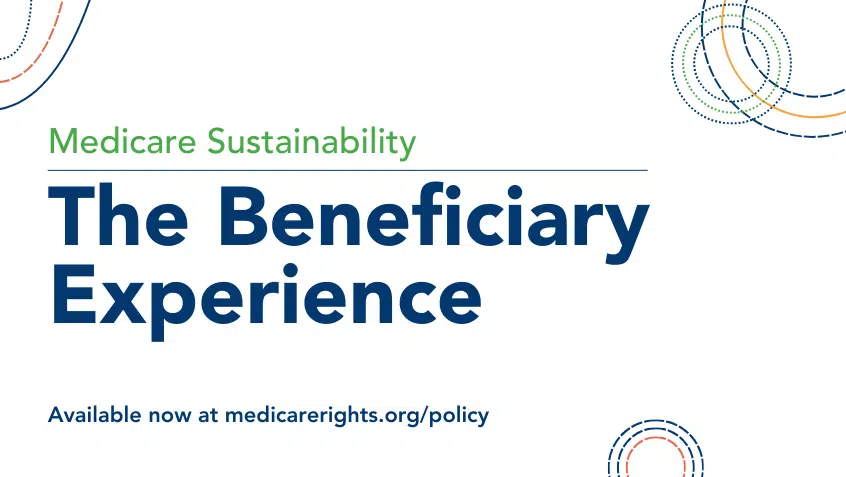Join Us Live for a Discussion on Medicare, Democracy, and the Future of Health Care
Kaiser Family Foundation Evaluates Medicare Advantage Plan Networks

This week, the Kaiser Family foundation released a study that examines the size and composition of physician networks in Medicare Advantage plans. A plan’s network is often a major consideration for people with Medicare when choosing between Medicare Advantage and Original Medicare.
As increasing numbers of people with Medicare choose Medicare Advantage, making a comprehensive understanding of Medicare Advantage plans’ physician networks crucial. KFF’s analysis draws upon data from 391 plans, offered by 55 insurers in 20 counties. Key findings include:
- More than three in ten (35%) Medicare Advantage enrollees were in plans that KFF designated as “narrow-network plans” while about two in ten (22%) were in plans determined to be “broad-network plans.”
- Medicare Advantage networks included less than half (46%) of all physicians in a county, on average.
- Network size varied greatly among Medicare Advantage plans offered in a given county. The report notes that, for example, “while enrollees in Erie County, NY had access to 60% of physicians in their county, on average, 16% of the plans in Erie had less than 10% of the physicians in the county while 36% of the plans had more than 80% of the physicians in the county.”
- Access to psychiatrists was typically more restricted than for any other specialty. Other specialties were restricted in some plans as well, including cardiothoracic surgeons, neurosurgeons, plastic surgeons, and radiation oncologists.
- Broad-network plans tended to have higher average premiums than narrow-network plans.
KFF also observes that although this network information is likely to be particularly important to enrollees when they have an unforeseen medical event or serious illness, accessing the information may not be easy for users and comparing networks could be especially challenging. This could cause beneficiaries to unwittingly face significant costs if they accidentally go out-of-network.
Show Comments
We welcome thoughtful, respectful discussion on our website. To maintain a safe and constructive environment, comments that include profanity or violent, threatening language will be hidden. We may ban commentors who repeatedly cross these guidelines.
Help Us Protect & Strengthen Medicare.
Donate today and make a lasting impact.
The Latest
Most Read
Add Medicare to Your Inbox
Sign up to receive Medicare news, policy developments, and other useful updates from the Medicare Rights.
View this profile on InstagramMedicare Rights Center (@medicarerights) • Instagram photos and videos









